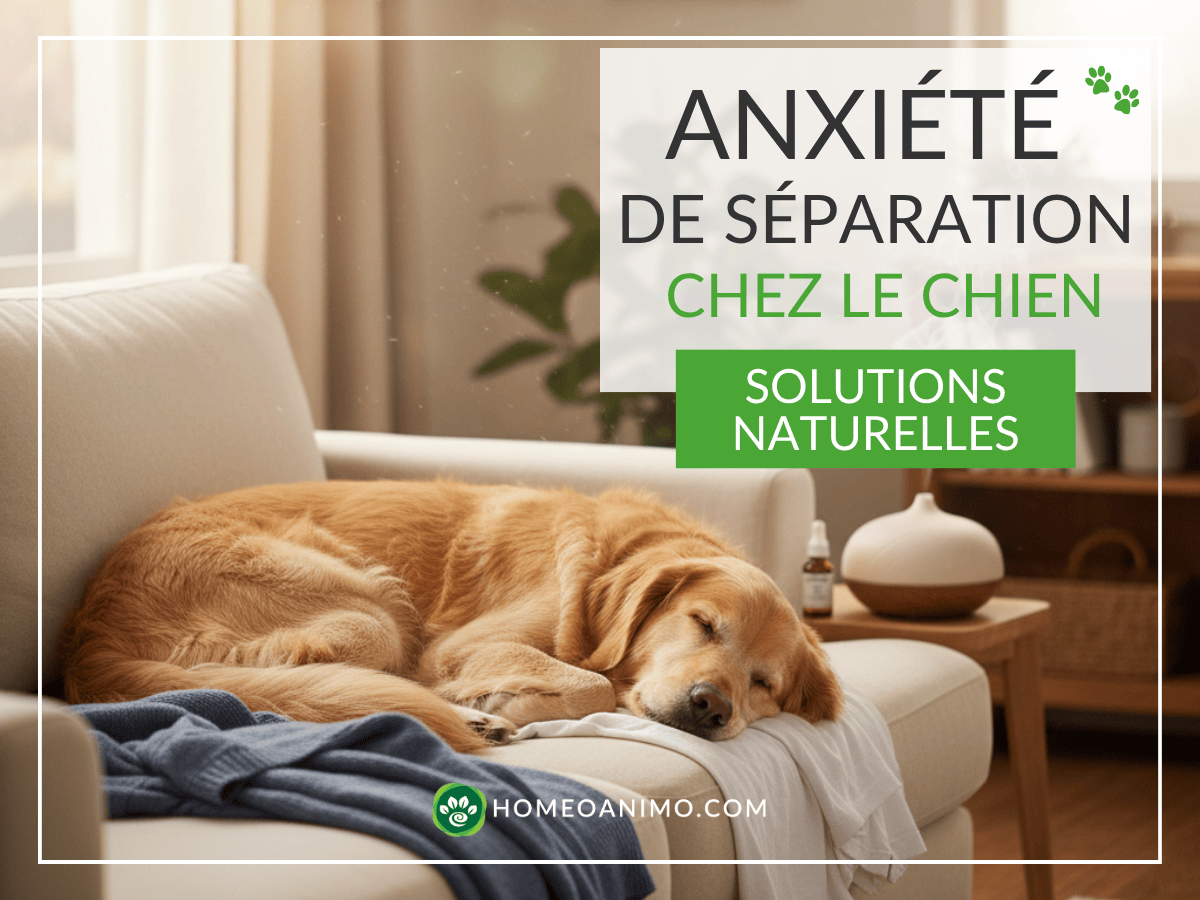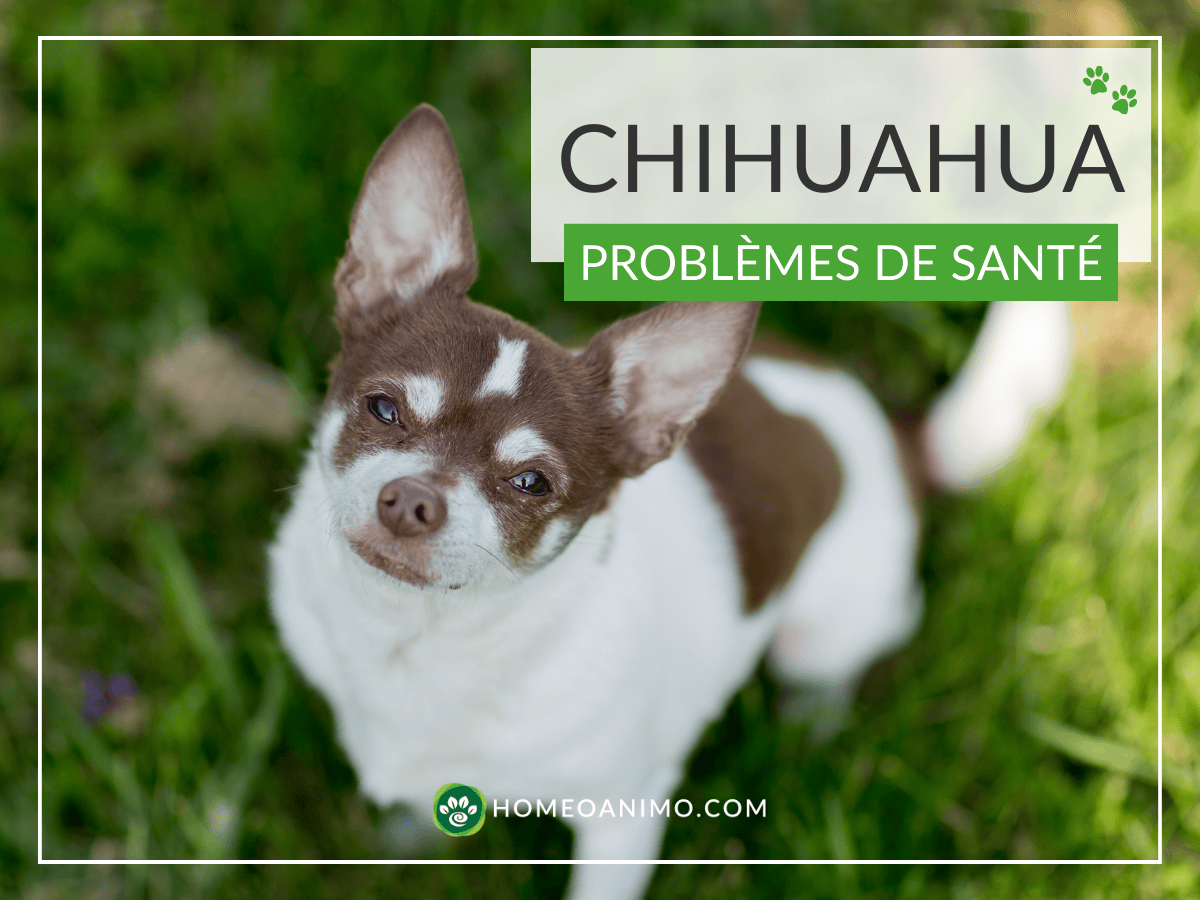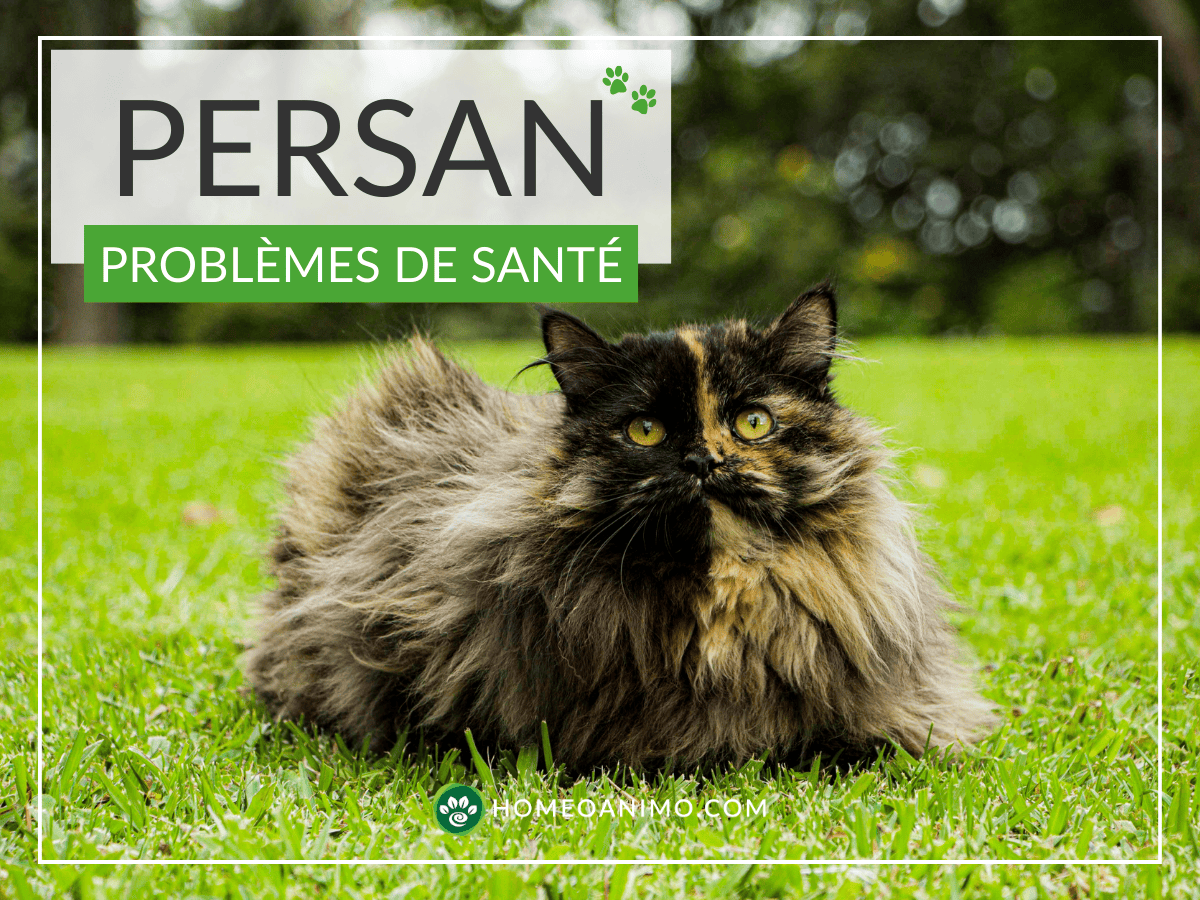Rather than simply being a sign of boredom or bad behavior, it is a real emotional distress that can have a significant impact on your dog's quality of life and yours.
Fortunately, there are gentle and natural solutions to ease this anxiety. Let's discover together how to help your dog cope better with your absences.
What is separation anxiety in dogs?
Separation anxiety is a behavioral disorder in which a dog exhibits excessive distress when its owner or loved ones are absent or left alone. This is not just a whim, but a real panic.
This disorder is often linked to hyper-attachment and can be triggered by a change in routine, a move, or the adoption of an adult dog that has already experienced abandonment.
What are the signs of separation anxiety?

Recognizing the signs is the first step in helping your dog. Symptoms usually appear within 30 minutes of your departure. They include:
- Destruction: Chewing on furniture, door frames, or personal items.
- Excessive vocalization: Prolonged barking, howling, or whining.
- Uncleanliness: Urinating or defecating in the house, even if the dog is normally clean.
- Escape attempts: Scratching or biting doors and windows to the point of injury.
- Anxious behavior before departure: Excessive salivation, trembling, or following you around.
How can I prevent and desensitize my dog to my departures?

The behavioral approach is essential. You must teach your dog that your departures are not a source of danger:
- Make departures and returns discreet: Ignore your dog 10 to 15 minutes before leaving and 10 to 15 minutes after returning. No parties or dramatic rituals.
- Practice fake exits: Get dressed, grab your keys, then sit on the couch. Repeat this ritual until it no longer elicits a reaction.
- Gradually increase the time away: Start with one minute, then two, then five, and so on. The ASPCA recommends gradual desensitization.
What are some natural solutions to calm my dog's anxiety?

As an essential complement to behavioral training (desensitization), natural solutions work deeply to modulate your dog's emotional state and nervous system , helping them regain calm and serenity in your absence. It is always recommended to consult your veterinarian or naturopath specializing in animal health before introducing any new supplement.
1. The impact of supplements: Amino acids and derivatives
These supplements often act on brain neurotransmitters to promote a state of relaxation without sedation. They are excellent for daily use and as a preventative measure against anxiety in dogs:
- L-Theanine: This amino acid, naturally present in green tea, is known for its anxiolytic properties. It crosses the blood-brain barrier to stimulate the production of alpha waves in the brain, promoting a state of calm and relaxed alertness in your dog.
- Hydrolyzed Casein: Derived from milk, this protein contains bioactive peptides that bind to the same brain receptors as anxiolytics. It helps reduce your dog's stress and anxiety in a very gentle way, mimicking a "cocooning" and reassuring effect.
- Tryptophan: A precursor to serotonin (the happy hormone), it can help improve mood and reduce stress reactions. A clinical study has shown the effectiveness of certain amino acids in managing anxiety disorders in dogs.
2. Phytotherapy: The power of plants
Plant extracts have been used for centuries for their soothing and mild sedative properties. They are ideal for gentle, long-term management of anxiety in dogs:
- Valerian: Known for its sedative properties, it is useful in cases of severe anxiety and can help relax muscles. It is often administered in tincture or capsule form.
- Passionflower: Traditionally used to relieve nervousness, restlessness, and insomnia. It's a plant known to calm your dog's nervous system without causing excessive drowsiness. The use of herbs such as Passionflower and Valerian is well documented for reducing signs of stress and anxiety in animals.
- Chamomile: In addition to its anti-inflammatory properties, it offers a mild calming action, ideal for dogs whose anxiety manifests itself in digestive agitation or mild tremors.
3. Elixirs: Bach Flowers
Bach Flowers act on the animal's emotional state. They are safe and have no contraindications:
- For separation anxiety, a specialist may recommend flowers that target hyper-attachment (like Chicory ), panic or terror (like Rock Rose ), and the need for support or distress (like Star of Bethlehem ).
- A consultation helps create a personalized blend that will take into account your dog's unique personality and specific emotions, providing targeted emotional support.
4. Aromatherapy: Careful Use of Essential Oils
Olfaction is a highly developed sense in dogs. It is imperative to use essential oils (EOs) with the utmost caution and professional advice, as some can be toxic, even when diffused passively. ** Never apply pure EOs to your dog's skin or force them to inhale an odor. **
- Safe diffusion: Essential oils such as True Lavender (Lavandula angustifolia) or Roman Chamomile (Chamaemelum nobile) are generally well tolerated. They should be diffused in a very well-ventilated room and not adjacent to where the dog is, so that he can move away if he feels the need.
- Dilution: The use of EOs on the coat must be strictly limited and done with extremely diluted synergies (less than 0.5%) and approved by an aromatherapist specialized in animal health. The main mode of action for anxiety remains gentle environmental olfaction.
Watch our video:
How can the presence of a guardian help?

When you're away for long periods or your dog's anxiety is severe, the simplest solution is to keep your dog from being alone. This is where pet sitting comes in handy. Hiring a pet sitter at home has many benefits for an anxious dog:
- Maintaining routine: The dog remains in its familiar and secure environment, which is crucial.
- Constant human interaction: The presence of a person throughout the day prevents isolation and drastically reduces the opportunity for anxiety to arise.
- Stimulation and Exercise: The sitter can provide necessary walks, play, and enrichment, keeping your dog's mind positively occupied.
FAQ - Separation Anxiety in Dogs
Can separation anxiety be completely cured?
Yes, separation anxiety is a disorder that can be managed and, in many cases, resolved. It requires patience, consistent behavioral training (desensitization), and the judicious use of natural supports or professional help (veterinary behaviorist).
Should I ignore my dog when he cries at first?
It's advisable not to respond to excessive displays of attachment before departure or immediately after returning. This doesn't mean ignoring him completely, but rather avoiding overly emotional rituals that increase his anxiety. Create a calm, emotion-free time around your absences.
Is it a good idea to leave clothes with my scent on them to calm my dog?
Yes, for many dogs, this is an excellent technique for creating a reassuring environment. The owner's scent is a source of comfort and security. Leave an old t-shirt, blanket, or unwashed sweater in their resting place. This gives them a sense of presence, but it shouldn't replace behavioral training, which remains the key to managing the source of anxiety.
Can I use a pheromone diffuser?
Dog appeasing pheromone diffusers (DAPs) are an excellent complementary aid. They release synthetic pheromones that mimic those produced by the mother dog after giving birth, creating a sense of security in the environment.
Conclusion
Managing your dog's separation anxiety is a marathon, not a sprint. By combining rigorous behavioral training with the help of natural solutions to calm their nervous system, you're putting the odds in your favor. Never hesitate to consult a specialized naturopath or veterinary behaviorist for a personalized plan. Your home's peace of mind and your dog's happiness depend on it!
If you're concerned that your pet may be suffering from a health issue, our Free Pet Health Recommendation can help. In addition to receiving advice and recommendations from our Natural Health Advisors, they'll also guide you through the products and treatment options that best suit your pet's health needs.
External sources
- ASPCA. Separation Anxiety .
- Sofyan, L. (2024). In adult dogs is supplementary tryptophan in the diet effective in reducing signs of anxiety? . Veterinary Evidence 9(4).
- Forsgren, S., Svanberg, M., & Lindhe, C. (2023). Effects of a Nutritional Supplement (DìRelaxTM) on Anxiety in Dogs in a Randomized Control Trial Design . MDPI (Animals).
- Blooming Pets. Pet care .





























Leave a comment
This site is protected by hCaptcha and the hCaptcha Privacy Policy and Terms of Service apply.